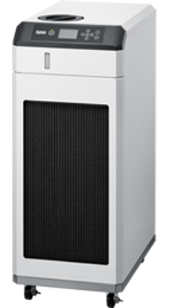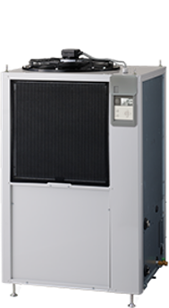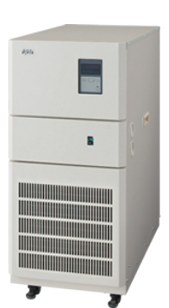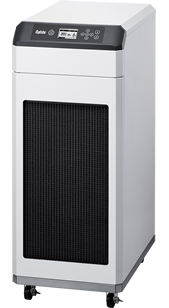Regular chiller inspections are now mandatory! What is the Fluorocarbons Emissions Control Act and what inspections are required?

Chillers used in factories are required by law to undergo regular inspections. The basis for this is the Fluorocarbons Emission Control Law, which restricts the release of fluorocarbons.
Fluorocarbons, a general term for fluorocarbons (compounds of fluorine and carbon), are low in toxicity to the human body and are used as refrigerants for refrigerant and insulation materials, but they have a significant effect on the ozone layer and greenhouse gas emissions, and their impact on global warming is clear.
Therefore, in order to protect the global environment, it is necessary to regularly check chillers and prevent leaks so that fluorocarbons are not released into the atmosphere.
This time, we will provide a detailed explanation of the outline of the Fluorocarbons Emission Reduction Act and the regular inspections that are mandatory for chiller managers.
View Apiste chiller product information
Table of contents
1. What is the "Fluorocarbons Emissions Control Law" that makes chiller inspections mandatory?
First, let's look at the Fluorocarbons Emission Reduction Act.
■ Fluorocarbon Emission Control Law to Prevent Global Warming
The Act on Rational Use and Proper Management of Fluorocarbons (Fluorocarbons Emission Control Act) was fully implemented in April 2015. As mentioned earlier, this law was created to prevent the leakage of fluorocarbons, which cause global warming, and was revised in April 2019 to strengthen regulations on alternative fluorocarbons.
As of April 1, 2020, regulations have been strengthened, such that disposal of equipment without recovering fluorocarbons will immediately become subject to criminal penalties.
Many factories use commercial refrigeration and air conditioning equipment filled with fluorocarbons, including chillers. The Fluorocarbons Emissions Control Law requires managers (owners) of these equipment to inspections simple and regular inspections.
■ Chillers are included in the first-class specified products
Commercial refrigeration and air conditioning equipment that is subject to the Fluorocarbons Emission Reduction Act is called Type 1 specified product.
For example, this includes "commercial air conditioning equipment" such as chillers, packaged air conditioners, and turbo freezers, as well as "commercial refrigeration and freezing equipment" such as freezing and refrigeration units.
Equipment sold after April 2002 is required to display as such, so it will have a sticker or printed marking stating that it is a "Type 1 specified product." However, if you are unsure, it is a good idea to inquire with the manufacturer or retailer.
2. Simple periodic inspections performed by the chiller manager
There are two types of chiller inspections required by law: "simple periodic inspections" and "periodic inspections." The "simple periodic inspections" are the ones that chiller managers must carry out themselves.
This "manager" refers to the company or corporation that owns the target equipment (Type 1 specified product), and the manager must inspections at least once every three months.
During the simple periodic inspections, the following items of the chiller and piping will be inspected.
< inspections contents>
- - Check for abnormal sounds or vibrations
- ・Is there any strange odor or smoke?
- - Is the circulating fluid temperature maintained at the set temperature?
- - Check if the condenser or cooling water circuit is clogging.
- -appearance the chiller for oil stains, corrosion, rust, damage, frost, etc.
etc.
When chillers are inspections, it is mandatory to record and save inspections date, time, and details. To ensure proper management, create a record book for each piece of equipment when inspections is performed and keep it on hand until the chiller is disposed of.
3. Regular inspections carried out by specialists or qualified personnel
If the chiller compressor has a rating output of 7.5kW or more, in addition to the manager's own inspections, a "regular inspections" must also be carried out at least once a year.
Unlike simple inspections, regular inspections must be carried out by "someone with sufficient knowledge" or a qualified person such as a "refrigerant fluorocarbons handling technician."
rating output of the compressor can be checked on the "nameplate" sticker attached to the chiller, so if the nameplate states 7.5kW or more, have it inspections by a qualified person or specialist.
4. Two benefits of regular chiller inspections
Regular chiller inspections have many benefits in addition to protection the global environment. Finally, let's take a look at two benefits of having your chiller inspections.
■ Increased service life
The biggest benefit is that the chiller's effective service life is extended.
It is inevitable that the functionality and performance of a chiller will decline over time, but by regularly checking for defects and regularly cleaning and maintaining it to restore functionality and performance, the period until it reaches its limit of use can be extended.
■ Reduced running costs
Detecting abnormalities also leads to reduced running costs. When fluorocarbons used as refrigerant leak, cooling capacity decreases, and power consumption increases to compensate for the decrease.
In addition, repairs that are made after a major problem occurs are very costly, so it is expected that regular maintenance, even if it costs a little more, will lead to reduced maintenance costs.
5.まとめ
In April 2015, the Fluorocarbons Emission Control Law came into effect, which restricts the release of fluorocarbons into the atmosphere, and as a result, chiller managers are now required to conduct regular inspections.
There are two types of periodic inspections: "simple periodic inspections" performed by the chiller manager himself, and "periodic inspections" performed by qualified personnel.
Simple periodic inspections are carried out once every three months to check for abnormal sounds or odors, rust or damage to appearance of the chiller, etc. In addition, chillers with a compressor rating output of 7.5 kW or more are required to undergo periodic inspections every year.
Although chiller inspections are now mandatory, they also have the benefit of extending the usable life of the chiller and reducing running costs. Take advantage of regular inspections to detect any chiller abnormalities early on.





